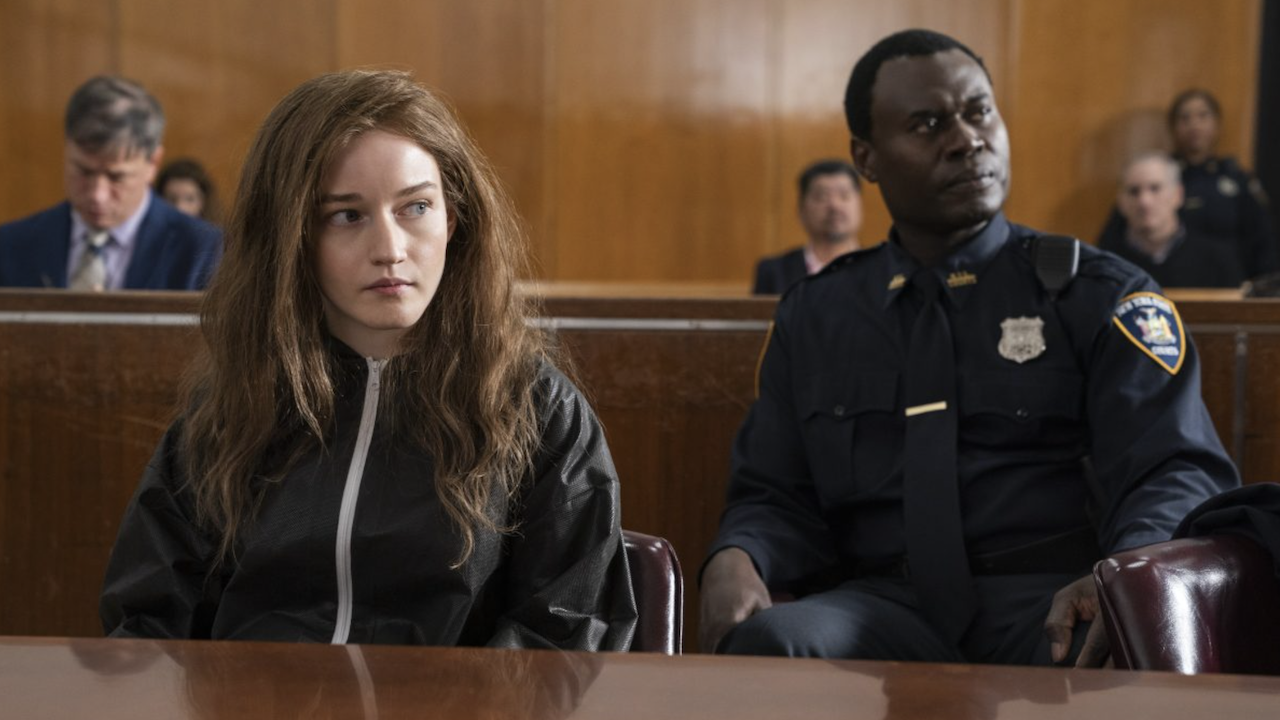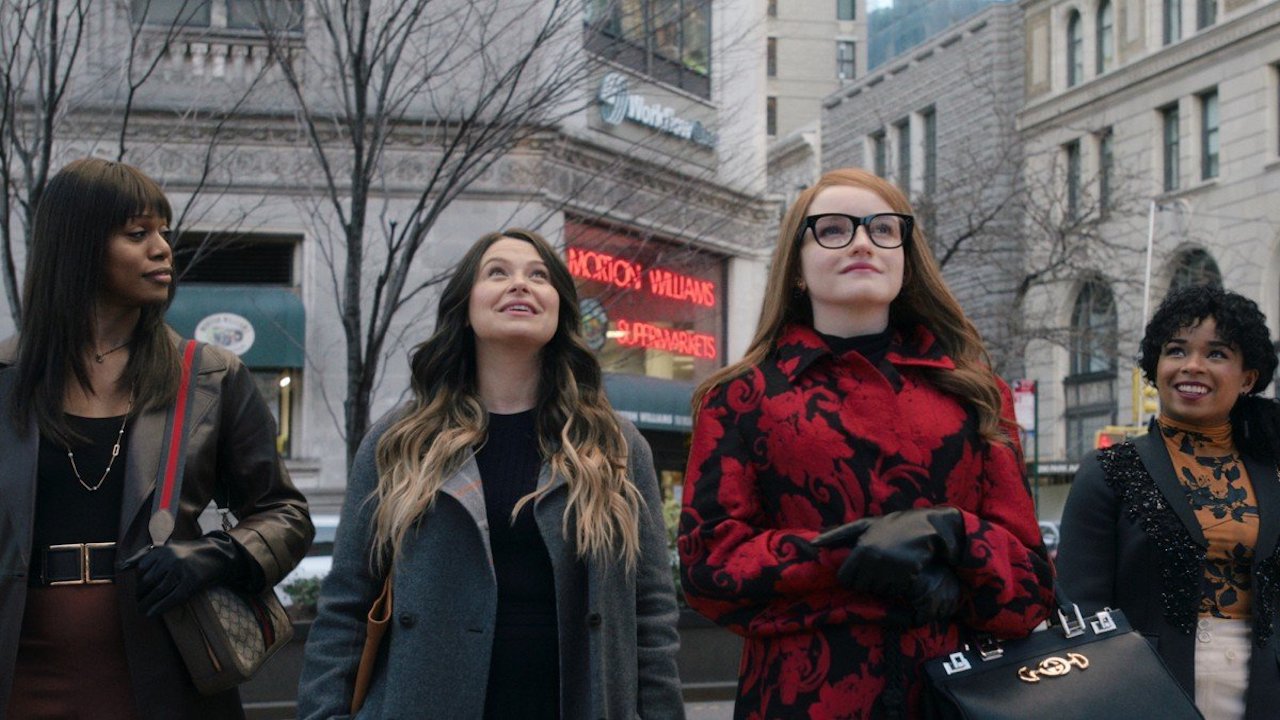Stale conwoman drama Inventing Anna scams the audience out of a good time

Julia Garner is fabulously two-faced as conwoman Anna Delvey—but according to Eliza Janssen, everything else about Inventing Anna has significantly less sparkle than its true source material.
If we’ve learned anything from great cinema, such as Citizen Kane or Mean Girls, it’s that we can often gain greater insight to a tyrannical main character through the perspective of their supporting cast.
TV mogul Shonda Rhimes overuses this device in Inventing Anna, based on the crimes of high-society scammer Anna Delvey (real name Anna Sorokin). We hear so many contradictory descriptions before ever meeting Anna (Julia Garner) herself: she was definitely old money, definitely new money, a genius, a vapid socialite, she had killer style, she smelt bad…
It’s up to disgraced journalist Vivian Kent (Anna Chlumsky) to consolidate all these accounts into an explosive write-up of Anna’s upcoming grand larceny trial. At first, the girl approaches her as the victim of some hideous—perhaps even an anti-migrant, misogynistic—conspiracy, all fragile little micro-expressions and that clipped accent.
Until Garner turns her acid eye on Vivien from across the glass prison partition, asking “are you pregnant or are you just so very, very fat?” In an instant, I don’t give a Cartier-encrusted shit what all the other characters can reveal: I only want to spend time with this fiercely entitled young girlboss. Yass mama, werk, etc.
Garner nails plenty of catty lines like that in the flashbacks and montages to come, often soundtracked with enough braggadocious R&B to make you feel like you’re accidentally watching Real Housewives instead. Gradually, the impact of her Tommy Wiseau-esque, supremely bitchy performance is unfocused by the blank-slate cluelessness of the characters around her. They’re all such easy marks. Anna’s main squeeze, for instance, is introduced to us mid-TedTalk, asking “what if I could cloud source your dreams?”

Hell, Fyre Fest entrepreneur Billy McFarland shows up as a side character—so does pharma douche Martin Shkreli. One almost feels disappointed that there’s no after-credits sequence introducing Amanda Seyfried as Elizabeth Holmes. In a world where everyone else is so forehead-smackingly shallow, Anna’s layers of lies are almost refreshing in contrast—but they also take on a blandness that was absent from the incendiary New York Magazine article that kicked off this whole series.
Scammer stories are fuelled by the audacity of their protagonists: just how low will our protagonist go, for money or fame or self-fulfilment? In Anna’s case, the motive behind the madness is enjoyably unclear, especially when her dream of establishing an exclusive art club (named after herself, of course) seems to be coming true. Garner takes on new slang and connections as easily as she swaps wigs to con her next moneyed target. The cosmopolitan disguise only falters when a check bounces; then she’s a malfunctioning robot, stuttering that she can pay until some poor companion steps up to foot the bill.

It’s not like this process isn’t amusing to watch. We love to see rich people get tricked out of their money and taken down a peg, especially in the case of one rich Manhattanite who doesn’t notice almost half a million missing from her account. But Inventing Anna is simply not clever enough in its observation of the ultra-rich: it lacks any curiosity in the deeper consequences of seeking fame in and of itself.
Working-class characters such as Vivian, feisty Neff (very entertaining newcomer Alexis Floyd), and Anna’s defence lawyer Todd (Adrian Hosseini) don’t have much more to say about the obscene wealth on display than “woah, shiny!” Hosseini is recognisable from his work on Succession, a show in which one-percenter corporate assholery has fuelled 30 hours of incredibly tense, funny drama: why can’t this show wring out nine? Especially considering that its inspiration is based in fascinating real events?

The constant reminder that we’re watching a true story “except the parts that are totally made up” feels stale, too. Films like The Wolf of Wall Street and the semi-documentary American Animals knew they had to experiment with fact and fiction, the fourth wall, an audience’s expectations, to make their depiction of criminal minutiae so absorbing. Inventing Anna fails to deliver any subversion or experimentation, leadenly adapting each supporting character’s account to such an extent that the true story’s enigmatic spark has quietly sputtered out by the finale. Everyone’s a boringly reliable narrator, even the slippery title character.
After constantly being teased as to who the real Anna Delvey is—through the eyes of an entire New York community and through Garner’s truly enjoyable interpretation—you might instead find yourself asking a question that Rhimes and her team at Netflix certainly didn’t anticipate: “who cares?”

















